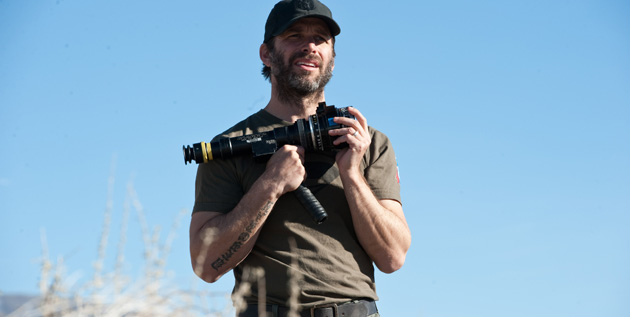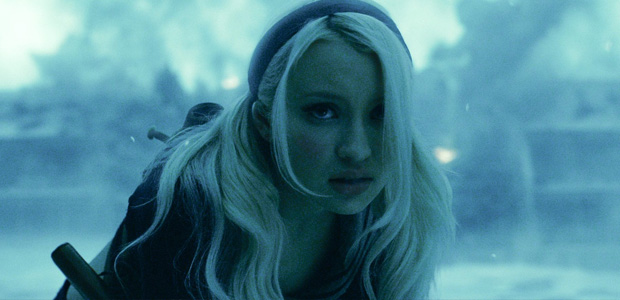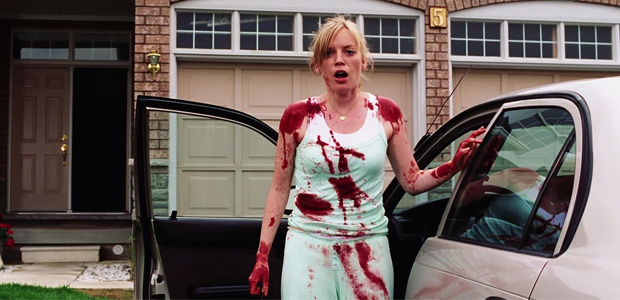
Hailed by a small group as one of the more visually dynamic directors currently operating out of Hollywood, scorned by an equally sized sect as the nightmarish culmination of ADD filmmaking — while, seemingly, treated with indifference by the rest — Zack Snyder is, by all means, a divisive figure. Yours truly happens to see him as a real talent — if not a “visionary,” still a far more ambitious and thrilling helmer than most big-scale movies have nowadays.
With his latest, bound-to-be-biggest title hitting theaters tomorrow (odds would say you’re aware), now’s as good a time as any for the worst-to-best countdown of his short, albeit wide and prolific time as a feature director. The list contains some specific placements which guarantee a ranking that isn’t widely agreed upon — the selection for last place is bound to (prematurely) ruffle some folks’ feathers — but if it forces the reconsideration of a title or two, the job has been done. Check out the rundown of his feature films below and brush up on his earlier work here.
6. Man of Steel (2013)
Better to get this one out of the way. No matter the quality of its cast, Snyder’s appropriately epic treatment of a Superman fight, or its occasional willingness to play things a little kooky, Man of Steel is a limp and forgettable entry into the modern superhero canon. One of its few truly significant qualities is pretty evident in the placement: Snyder’s worst title. Here are some longer, fresh thoughts on the matter.
5. Legend of the Guardians: The Owls of Ga’Hoole (2010)
Notwithstanding its distinction as the most curious item in his oeuvre, here we have a dull and workmanlike animated feature that quickly came and went in the fall of 2010. Little about this title is of any interest — its plot is an almost comically rigid follow-through of the hero’s journey template, while action (a specialty for Snyder) is virtually weightless — except if you care enough to witness Snyder working in a different mold. In that case, the confounding matter of its own existence should make Legend of the Guardians (possibly) worth a pass.
4. Sucker Punch (2011)
This writer would like to think Sucker Punch is some kind of great divider in the Snyder canon, but that would incorrectly presume it’s a truly divisive movie. Upon release — almost exactly six months out from Legend of the Guardians — it was scorned by critics and roundly rejected by audiences, with many taking the film as a brainless, misogynistic affair, the latter stinging when you consider its much-ballyhooed female empowerment angle. If you were on Twitter that one week in the spring of 2011, you know how much of a stir one movie could cause.
Far be it from me to proclaim that so many of the dissenting voices (some of whom I respect) are wrong… but, there remain sneakily clever aspects of Sucker Punch that imbue the film with bizarre strength. What a large number perceive as needlessly aggressive and stupid (or just aggressively stupid) is, to the eyes of yours truly, self-effacing, cynical, and hugely critical of its target audience. For the director piggybacking off a huge action hit to direct combat that’s purposefully boring? It’s not the most stimulating decision of his career, but, heck, it’s not incongruous to the intentions. Sucker Punch is problematic, and maybe even a failure, yet a fascinating one far more worthy of closer inspection than nearly all else would indicate. Which, of course, doesn’t mean anyone should start giving the movie credit. Such an insane task falls to people like myself.
3. 300 (2007)
By all means the start of the Zack Snyder we either love or hate, 300 is, like the title right above it, mistakenly perceived as a “serious” effort gone awry from overly macho intent. What we have, instead, is a bloody action-adventure title that uses a knowingly stupid screenplay — adapted rather faithfully from a comic by Frank Miller, whose legitimate insanity is a perfect springboard — and, visually, exacerbates what’s written on the page tenfold. If you think this a too-kind assessment, reflect back on 300 for just a half-second: Xerxes? The fat guy with blade arms? “Uber Immortals”? That voiceover? Why would anyone think this is meant to be taken seriously?
All issues of intent and representation notwithstanding, Snyder’s action sequences — a large portion of 300’s runtime, one otherwise occupied by glistening muscles marching slowly — are a stirring collision of classical, extended shots and modern technique (smooth speed ramping, extensive use of green screen, computer-assisted zooming / expansions) that at once reinforces the absurdity while allowing us to simply bask in the spectacle. Take it all as a winking spin on Bush-era fears of the Middle East, and 300 is equal parts lampoon and slam-bang bloody fun.
2. Dawn of the Dead (2004)
No matter how much yours truly enjoys the skewed macho vision of Zack Snyder’s world, his first, least-identifiable (as far as stylistic stamps go) entry is still among the best. It’s a down-and-dirty zombie movie that updates George Romero’s ingenious setting for the 21st century, then supersedes its predecessor with more genuine scares — the first signs of outbreak, not to mention its lead into a Johnny Cash-accompanied opening credits sequence (when “The Man Comes Around” was still an acceptable piece of music), is masterful — and a less-tacky bout of social commentary. This is to say nothing of a fine ensemble, the work of whom further emphasize Snyder’s deft hand at juggling a wide range of performances; that Sarah Polley, Ving Rhames, and Ty Burr could fit together so neatly isn’t mere luck. How about that climax, too?
1. Watchmen (2009)
If you’re willing to accept a number of (intentional) peculiarities, Watchmen does not at all ring as some carbon copy of Alan Moore’s graphic novel, but rather an overpowering meld of sound and image quite unlike anything released by a major studio in the 21st century. Disjointed though it absolutely may be, this is a movie of stop and start exhilaration, never once sacrificing the intent of vaunted source material as it propels along in reframing today’s most commercially successful cinematic subgenre. (The director’s eventual transition to Superman is all the more disappointing thus.) To that end, Watchmen is not so much a direct adaptation as much as it is a compliment, possibly even an expansion — and, no less, the most audacious comic book film ever made.
Do you agree with the rankings? What’s your favorite Zack Snyder film?







